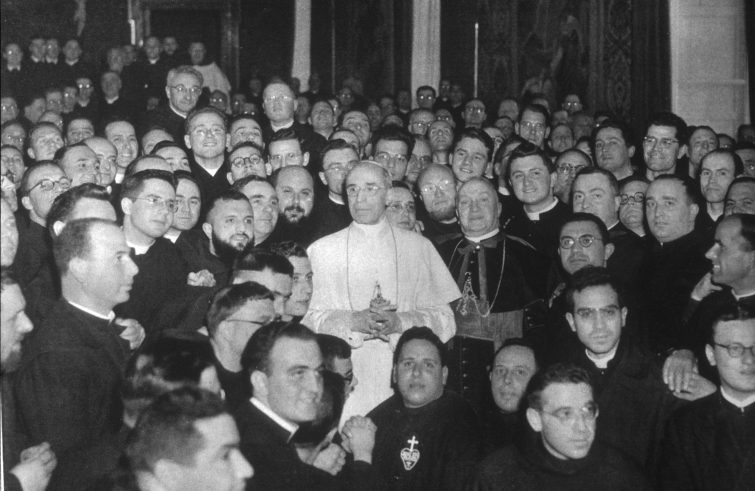
“Pius XII is an important figure which expresses the ancient, while guiding the Church towards the new; he is a crucial point of reference to understand the 20th Century. But not all Popes must necessarily become saints, or else we risk creating an identification which goes to the detriment of the few who will not be canonized”. Andrea Riccardi, historian and founder of the Community of Sant’Egidio, speaks on the day after Pope Francis’ announcement of the opening of the Vatican Archives on the papacy of Pius XII, on March 2 2020.

How did you react to the Holy Father’s decision?
I had been expecting it for years. The caution with which some Vatican archives are opened is not productive for history and for the Holy see. Indeed, closure has favoured a sense of secrecy and rejection of history that has spread throughout public opinion and among some scholars. We understand that this delay is caused by the laborious and complex preparation of considerable material, but contemporary history does have its own pace.
We went to work on Pius XII without access to the Vatican archives, so we relied on personal, states and prelates archives. All this led to well-established historical considerations that must now be called into question.
But when the archives on Pius XI were opened, for example, there was no desire to re-discuss the issues. Faced with the huge size of the archives, scholars did not get to the bottom of them. Perhaps it is different with Pius XII because the subject is still fresh.
Pius XII is considered a controversial figure. Could this be because we don’t know him well enough?
Every great figure is controversial. Pius XII lived in impossible times for an international institution such as the Catholic Church, which was being torn apart by the worldwide conflict. Those were dreadful times: Nazism had managed to rule over Rome for nine months, reaching right up to the Pope’s window; Communism had destroyed the Catholic Church in Eastern Europe, just like a new conqueror.
The Church of Pius XII faced impossible choices: condemn Communism, or negotiate with it? Denounce Nazism, or save as many lives as possible?But Pope Pacelli did not only play in defence.
He took part in important initiatives: the process of European integration which he joined with great conviction; the founding of the Christian Democrat Party in Italy; the beginning of a decolonized Church. There is also the question of China, and it will be interesting to see from the archives what went on with the arrival of Mao and the beginning of the crisis in relations between the Vatican and the Communist government of Peking.

Is there anything to fear from the documents in the archives?
Whatever had to come to light has already come out of diocesan and private archives. There is nothing to fear. We must consider instead that completeness will do justice to the action of the Holy See, I am sure of that.
When we do not have all available documentation, we succumb to sensationalism.
Instead, documents must be put into context. Completeness will do justice to the actions of the Holy See, of the Popes, and of the extremely important assistants of the Popes who made the history of the Church, such as Montini, Roncalli, Cardini: they worked in the backstage of the institutions but left important marks. The opening will be very positive and my wish is that we move quickly regarding the papacy that followed.
Will there be any consequences on the canonization process?
I am not familiar with the status of the process of Pius XII, but I know about Jewish sensitivity to his figure. For many Jews, the attitude of Pius XII in the face of the Shoah is incomprehensible. I do not think that all Popes must become saints. As a historian, I would like to say that Pius XII is an important and unavoidable figure for those who want to study political and religious history during the war and post-war periods. His figure expresses the ancient, while guiding the Church towards the new.

Will the approach of the Jewish world change with the opening of the archives?
Jewish people have often mentioned their interest in a better knowledge of the documents, so I believe that this will bring a more positive consideration – or at least a more historical one – of Pius XII. In fact, I would like to mention the important contribution that came with the courageous publication of the “Actes et documents du Saint Siège relatifs à la Seconde Guerre Mondiale<http://www.vatican.va/archive/actes/index_it.htm>”, by initiative of Paul VI. Those papers show a multifaceted attitude of the Holy See. Some of the items are not quite exemplary. I am thinking of some utterances by Monsignor Dell’Acqua about a Capuchin father who was helping the Jews in Rome, for example. We waited a long time after the courageous act of Paul VI in 1965. And I hope that the time elapsed does not lessen the historiographic passion of those who want to learn about the period and its figures.










